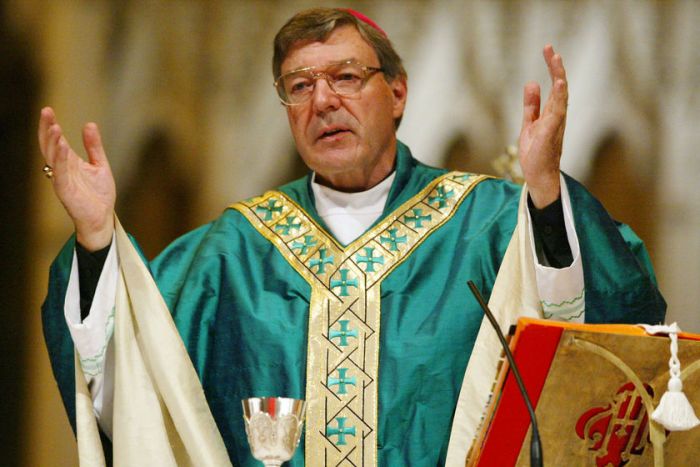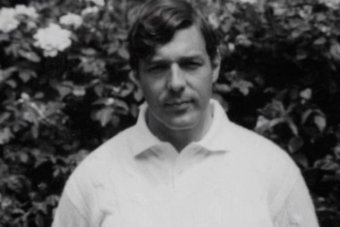George Pell: If Police Charge the Catholic Archbishop, We're in Uncharted Territory
By Noel Debien
As Victoria Police deliberate whether or not to lay charges against Cardinal George Pell, they are also weighing up whether to prosecute a potential world leader. This bold notion is not purple media prose. It is simply stating the facts. Cardinal Pell strenuously denies the allegations made against him. The Ballarat-born 75-year-old is potentially the pope in waiting. All it takes is for Pope Francis to die suddenly, and one of the 120-odd Cardinals will be the next pope. It could be Cardinal Pell. Cardinal Pell is the head of the Vatican secretariat for the economy. Effectively he is the third in charge of the 1.2 billion-member Catholic Church. The Cardinal has diplomatic immunity as a Vatican official, and Australia has no extradition treaty. In the modern era, laying serious or criminal charges against a Cardinal-Archbishop has not been done in free and democratic nations where immunity could apply. It has been done under communist regimes, but not the free world. There is also the matter of Archbishop Wilson of Adelaide who was charged under Section 316 of the NSW Crimes Act. But Archbishop Wilson is not a Cardinal. There are two shocking prior cases involving Americans really worth recalling. They concern Cardinal Archbishop Bernard Law of Boston, and Vatican banker Archbishop Paul Marcinkus. Cardinal Law was the Archbishop of Boston. Clergy sexual assault of children was rife in Boston under his watch. And so was the official cover-up. If you've seen the movie Spotlight, you have some sense of the depraved situation, and the enormity of the damage done to children and families. Vatican gave diplomatic immunity to Cardinal Law Cardinal Law was named a defendant in a number of serious and public cases involving paedophile priests. One of the worst cases included the notorious offender Fr John Geoghan, who had more than 130 victims. The Boston Globe blew the whistle on extensive cover-ups in the archdiocese in 2002 and Cardinal Law resigned as Archbishop in December that year. The Massachusetts state attorney-general launched an investigation into sex abuse and the Church. When the report was published in 2003, it said that under Cardinal Law's watch, the archdiocese of Boston had "made choices that allowed the abuse to continue". But it went on to say the cardinal had not broken any laws, since Massachusetts laws requiring priests to report abuse had not been introduced until 2002. Law and jurisdictions are key in many of these matters. More about that later. But after his resignation in disgrace, Cardinal Law went to the Vatican where he was given diplomatic immunity, a flat and a job by Pope John Paul II. The pope then gave him the honoured position of Archpriest of St Mary Major's basilica, one of the seven great churches of Rome. He has never been charged concerning the crimes committed by priests under his watch in Boston. He is now retired in the Vatican. Subjected to moral disapproval, critical press but no charges Archbishop Paul Marcinkus was the head of the Vatican Bank from 1971 to 1989. He presided over the Vatican Bank scandal, which involved, at various stages, suicide or murder and complex links to organised crime. On 24 April, 1973, Marcinkus faced questioning at the Vatican by a US federal prosecutor. The head of the organised crime and racketeering section of the US department of justice also questioned the Archbishop. It concerned his role in the delivery of US$14.5 million worth of counterfeit bonds to the Vatican in July 1971. There was much more money involved. Archbishop Marcinkus was never charged. After all the financial scandal and crimes had been exposed, the Marcinkus case was deemed unable to be pursued under US law. He eventually returned home to the US, where he died in 2006. In the cases of Cardinal Law and Archbishop Marcinkus, no charges were laid. The cardinal and the archbishop were subject to moral disapproval and sharply critical press, but no charges under law. Lack of sufficient evidence, or the absence of mandatory reporting laws, meant they were not legally accountable either under US federal law or Massachusetts state law. And here is where legal jurisdictions really matter. If Pell is charged, we are in new territory
Any possible charges being considered for Cardinal Pell would be under Victorian state law. They would be subject to the rules of evidence, meaning Victoria Police must decide if any existing allegations or testimony would withstand cross-examination in a court of law. That is a high bar. And Cardinal Pell lives in a different legal jurisdiction. So even if the cardinal was charged, he could choose to return to Australia, or he could choose to remain in the Vatican. Both would be legally possible, unless Pope Francis ordered Cardinal Pell to return. Under the Catholic Church's international code of canon law, the Pope is the "supreme legislator", and is in charge of the church legally and spiritually throughout the world. But there is no modern precedent for a pope ordering a cardinal to return and answer to a foreign legal jurisdiction, given neither Cardinal Law nor Archbishop Paul Marcinkus were charged in the US. The tiny Vatican State is independent of Italy. Its "code of penal procedure" governs its courts. Remember Pope Benedict's butler, who was charged under Vatican Law for stealing secrets? The Lateran Treaty governs relations with Italy. Because Vatican law and Italian law are somewhat intertwined, but not the same, there may be legal avenues to explore there. If Cardinal Pell is not charged, then the cases of Cardinal Law and Archbishop Marcinkus could be seen as parallel; much said in the press, much formal questioning, but no charges. But if he is charged, then we are in new territory.
|
.
Any original material on these pages is copyright © BishopAccountability.org 2004. Reproduce freely with attribution.

